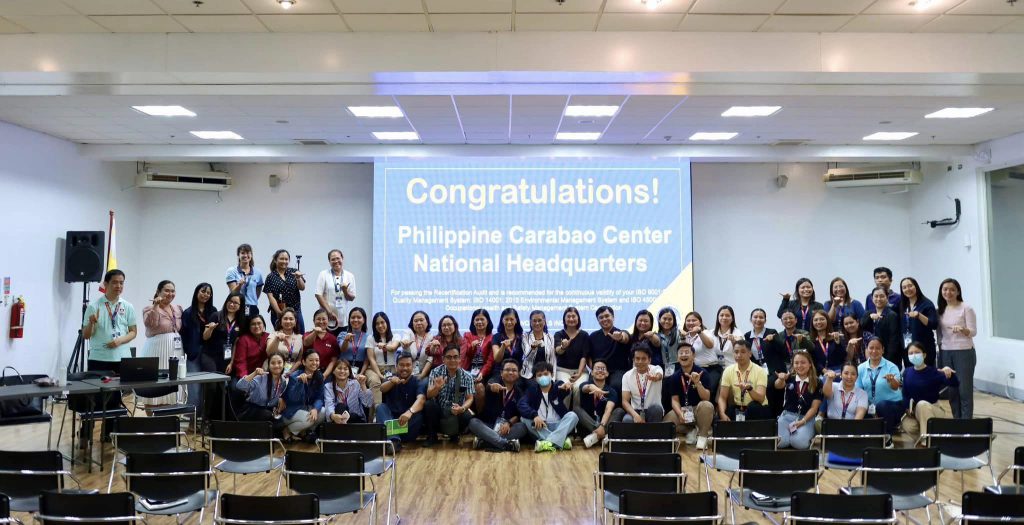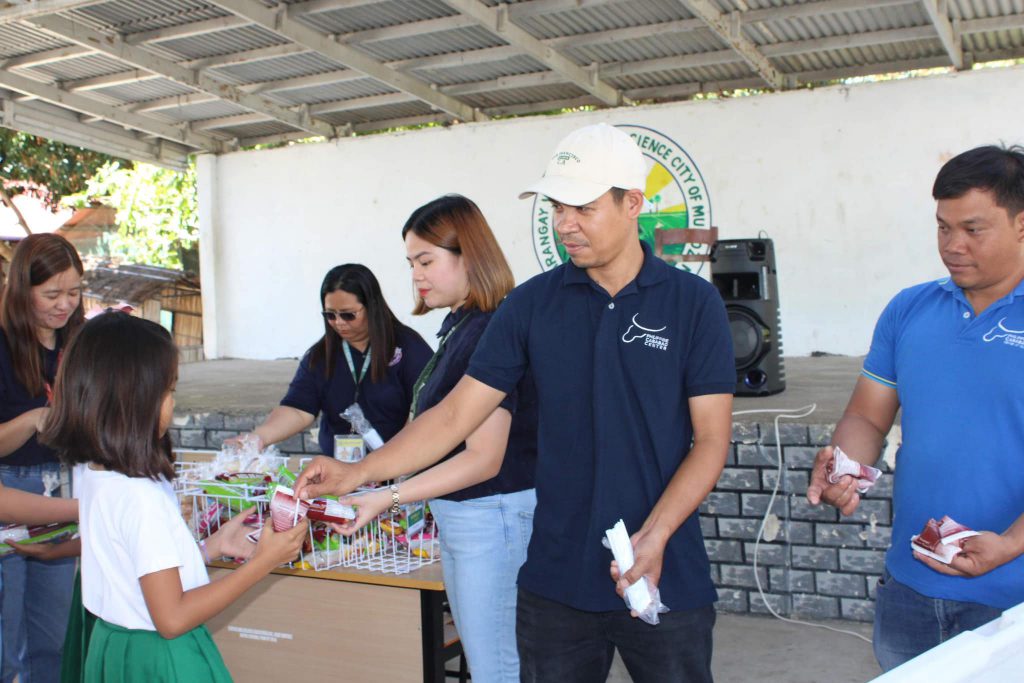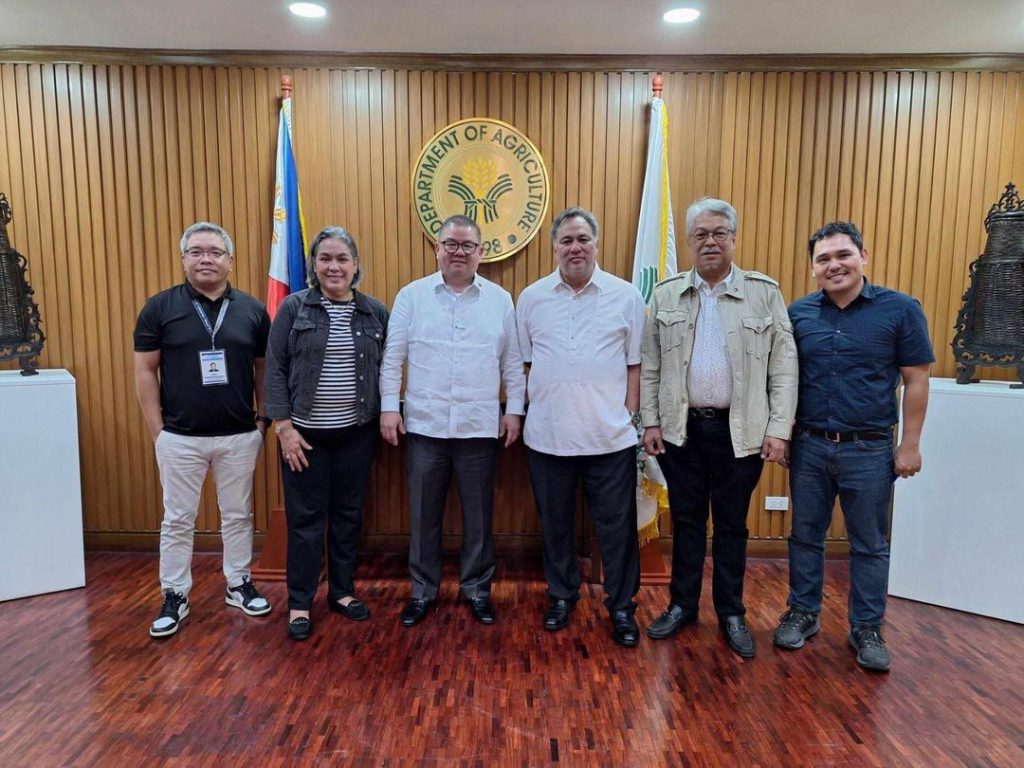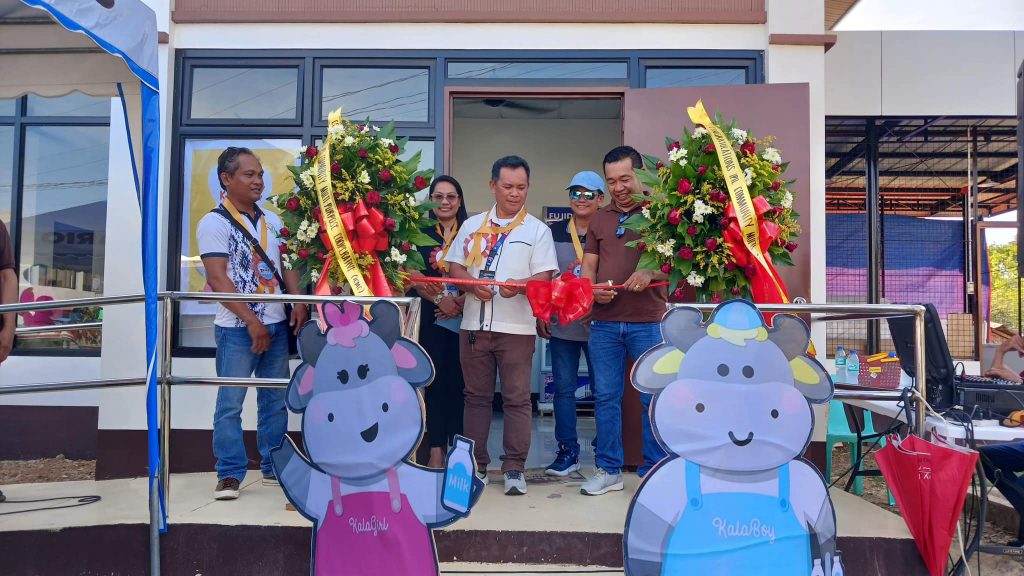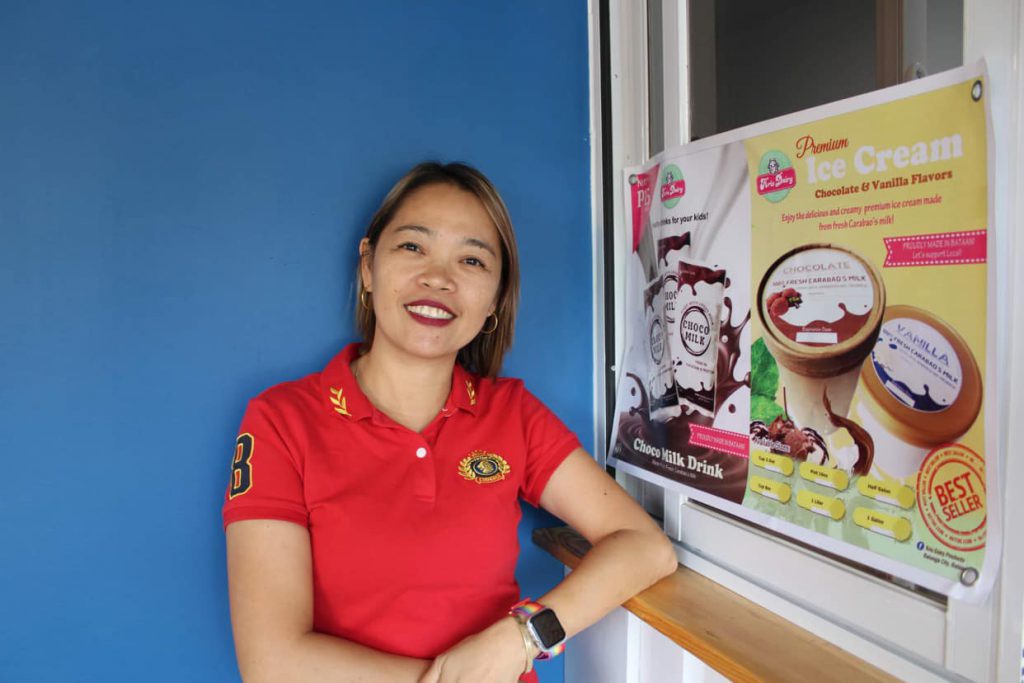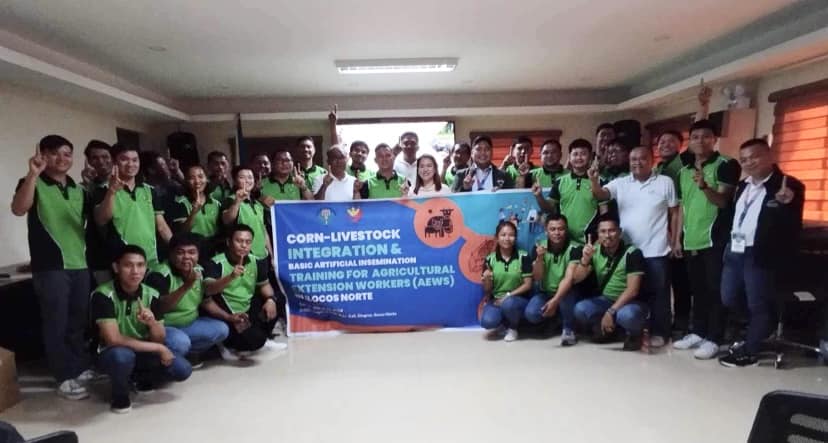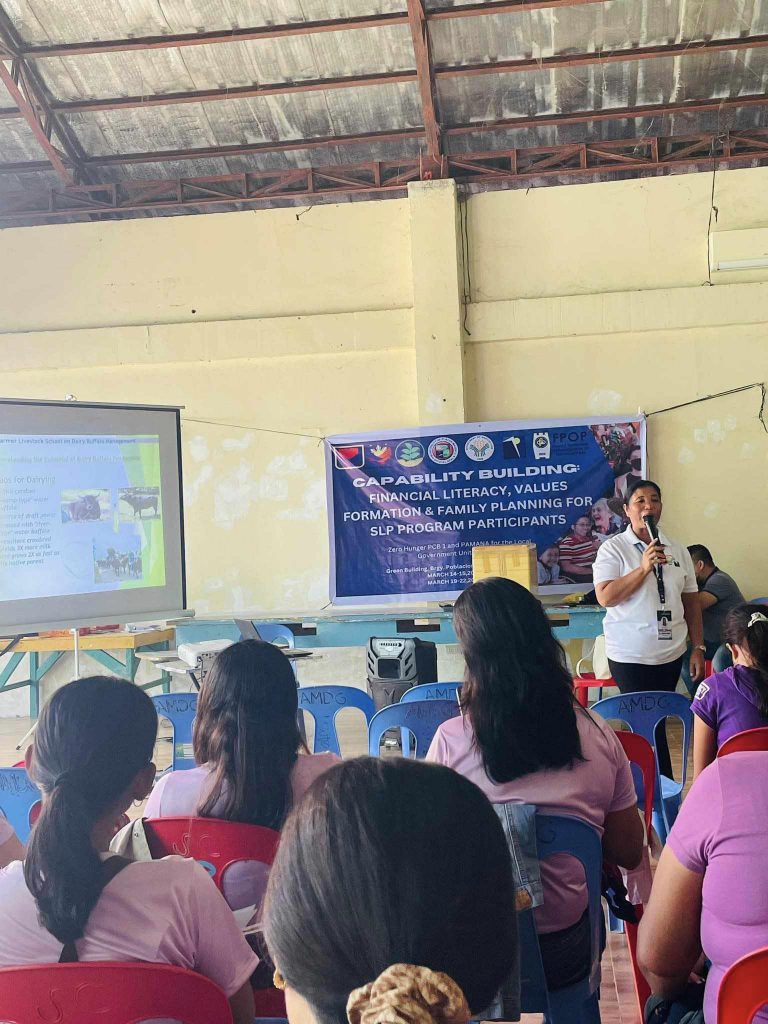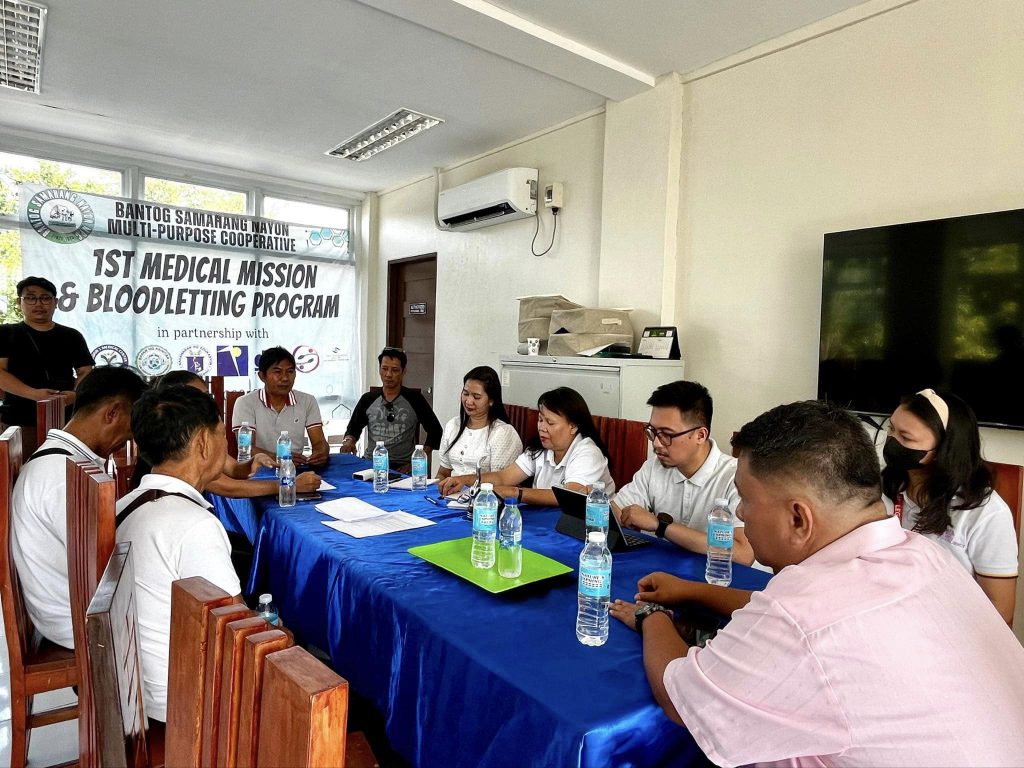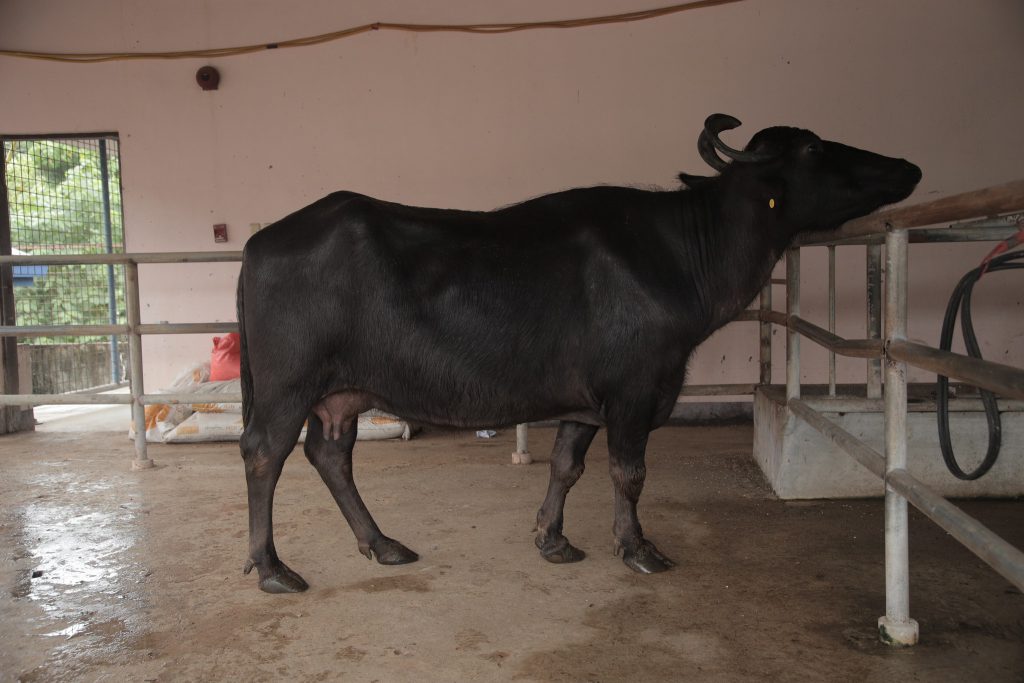Records show that a crossbred buffalo at the DA-Philippine Carabao Center (DA-PCC) reached a yield of 20 kg and maintained a daily yield of over 15 kg at its peak for two months during its second trimester of lactation.
Said crossbred buffalo maintained an average daily milk yield of 12.9 kg during its last lactation.
This, according to the agency’s National Coordinator of the Genetic Improvement Program (GIP) Dr. Ester Flores, is a groundbreaking record showcasing the program’s success.
This remarkable achievement was accomplished by a crossbred buffalo identified as 7UP15001, which yielded a total of 3883.7 kg of milk over a 299-day lactation period— the highest milk yield ever recorded among female buffaloes in the agency’s institutional herds.
It now holds the highest 100 days-in-milk average daily milk production (16.6 kg) and the highest 200 days-in-milk average daily milk production (15.6 kg).
7UP15001 has surpassed the typical lactation period of 265 days observed in dairy buffaloes within DA-PCC herds, which typically ranges from 200 to 369 days. Moreover, its milk production exceeds the 4.5 kg and 10 kg average milk yield per day per lactation for dairy buffalo and dairy cattle, respectively, during a 305-day lactation period under Philippine conditions.
This crossbred stands as a testament to the concerted efforts of DA-PCC’s GIP, specifically focused on backcrossing to harness the genetic potential of carabaos for enhanced milk and meat production. Born on January 6, 2015, at DA-PCC’s institutional herd at the University of Los Baños (DA-PCC at UPLB), this buffalo boasts a genetic composition of 87.5% Bulgarian Murrah and 12.5% swamp buffalo.
“7UP15001 is the result of our strategic backcrossing initiatives aimed at augmenting the population of dairy buffaloes in the Philippines while enhancing genetic selection to produce superior offspring,” Dr. Flores emphasized.
Backcrossing approach involves mating purebred riverine buffaloes with native swamp buffaloes (carabaos). The resulting offspring—crossbred carabaos—are bigger, meatier, and produce more milk than native carabaos, which can only provide an average of one to two liters of milk a day.
Imported purebred (riverine) buffaloes were initially used as semen donors in artificial insemination of swamp buffaloes. The resulting offspring are called crossbred carabaos. The resulting offspring, which has 50 percent riverine blood and 50 percent swamp blood, is called the first filial generation (F1).
The second filial generation (F2) is produced by mating a purebred bull with an F1 cow. They will now have 75% riverine and 25% swamp offspring. After that, the F2 cow is mated to a purebred bull to produce offspring that have 87.5% riverine and 12.5% swamp blood, leading to the third filial generation (F3). Mating a F3 cow to a purebred bull produces the fourth filial generation (F4), which has 93.75 percent riverine blood and 6.25% swamp blood. It is worthy to note that the DA-PCC’s backcrossing program follows a protocol of a no-father-daughter mating to avoid inbreeding depression.
When Murrah buffalo and Philippine carabao are crossed (mated), the resulting first generation crossbreeds grow up to 70%–100% quicker and yield 200% more milk than their native parents without compromising draftability or reproduction. A further increase in milk yield has come from the ongoing backcrossing of crossbreds with purebred Murrah.
The financial situation of small-scale farming households is anticipated to greatly improve as a result of the additional revenue brought in by this increased productivity.
“We are producing animals that can adapt to the tropical climate with little input and resource requirements. Our goal is to provide our farmers with the finest dairy carabao genetics through breeding,” Dr. Flores continued.
The processes of selective breeding and genetic evaluation under Philippine conditions include the recording of pedigree and phenotype, maintenance of pedigree and performance database, genetic evaluation and progeny testing, cryobanking of frozen semen, and continuous backcrossing.
“Animals like 7UP15001 are the result of a long-term effort to produce better buffalo with higher productivity. It didn’t come over night; it’s a series of actions. We cannot implement it without the sacrifice of the institutional herds using the semen of young bulls, recording the production of females, and doing it again from generation to generation,” Dr. Flores said.
Dr. Jesus Rommel Herrera, supervising science research specialist of DA-PCC at UPLB, clarified that there was no special treatment in raising 7UP15001, the animal just like carries favourable genes for high milk production suitable in a tropical climate.
“Even if a female has the genetic potential to produce more milk, this will only occur under the right management and feeding conditions. Effective management begins at birth,” said Dr. Herrera.
Wide-scale upgrading to benefit more families is being carried out through the judicious use of artificial insemination (AI) and natural mating (via the DA-PCC’s Bull Entrustment Program) in key carabao development areas.
Currently, DA-PCC has 12 institutional herds across the country collaborating to achieve the agency’s noble mission to conserve, propagate, and promote the carabao as an important source of milk and meat, in addition to draft power and hide.

